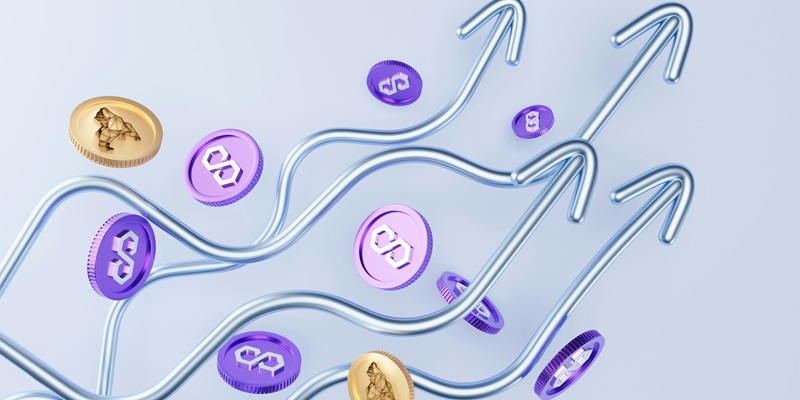Polygon is set to initiate a major upgrade by transitioning from its native MATIC tokens to a new token known as the Polygon Ecosystem Token (POL). Scheduled to begin on September 4, this change is a key component of the larger Polygon 2.0 upgrade that aims to enhance both network efficiency and scalability. With POL replacing MATIC, it will become the principal token for gas fees and staking within Polygon’s Proof-of-Stake (PoS) network. This significant move reflects Polygon’s broader ambitions to bolster its network infrastructure and capabilities.
The upgrade process for the POL token will be executed in phases, showcasing Polygon’s careful and structured approach to improving its system. Initially, POL will take over the gas and staking functionalities from MATIC. In later stages, the POL token will be integrated into Polygon’s AggLayer project. AggLayer focuses on optimizing Layer 2 solutions, and this integration represents a major step towards a more scalable and efficient network. Polygon’s users who hold MATIC on the PoS network won’t need to perform any actions for the transition. However, MATIC holders on Ethereum, Polygon zkEVM, or centralized exchanges might need to follow specific procedures to participate in the upgrade.
Strategic Phased Rollout of POL Token
The phased rollout of the POL token is indicative of a strategic approach to enhancing Polygon’s functionalities. The first phase centers on POL assuming the roles of gas and staking from MATIC. By strategically phasing in new functionalities, Polygon ensures that the transition is smooth and that any potential issues can be addressed early on. The subsequent stages will see POL being integrated into the ambitious AggLayer project. This component aims to focus on optimizing Layer 2 solutions, marking a substantial evolution in network capabilities.
In the transition, the Ethereum migration contract is already in place to ensure a seamless and permissionless upgrade for those opting to move from MATIC to POL. This contract aims to streamline the process, making it easier for users to transition without facing any undue complications. The launch of the testnet for the PoS upgrade on July 17 underscores Polygon’s meticulous method to identify and nip potential issues in the bud before fully migrating to the mainnet. This ample preparatory work symbolizes Polygon’s prudence and commitment to maintaining a high standard of performance and reliability.
Ongoing Developments Under Polygon 2.0 Roadmap
Polygon’s 2.0 roadmap involves more than just token transition; it includes various initiatives to augment the network’s overall competence. One of the key elements is the introduction of a new staking layer, aimed at enhancing Layer 2 solutions and upgrading the Polygon PoS to zkRollup technology. This upgrade is anticipated to provide solutions that are not only faster but also significantly more efficient in validating and processing transactions.
Furthermore, strategic partnerships are bolstering Polygon’s roadmap. Collaborations with entities such as Fox Corporation and Ronin Network emphasize the widening use cases of the network’s zero-knowledge (ZK) technology. These partnerships are aimed at harnessing the potential of ZK technology to provide robust and secure solutions tailored to different industries. By fostering strategic collaborations, Polygon aims to extend its influence and applicability across various sectors, integrating its advanced features to meet diverse technological demands.
Market Responses and Future Prospects
Polygon is gearing up for a significant upgrade by shifting from its native MATIC tokens to the new Polygon Ecosystem Token (POL), starting on September 4. This transition is a crucial part of Polygon 2.0, an upgrade designed to enhance network efficiency and scalability. POL will replace MATIC as the primary token for gas fees and staking within Polygon’s Proof-of-Stake (PoS) network. This major shift illustrates Polygon’s broader goals to strengthen its network infrastructure and capabilities.
The POL token upgrade will be rolled out in phases, highlighting Polygon’s methodical approach to system improvement. Initially, POL will handle gas and staking roles currently managed by MATIC. In later phases, POL will be integrated into Polygon’s AggLayer project, which focuses on optimizing Layer 2 solutions. This integration signifies a crucial step toward a more scalable and efficient network.
Polygon users with MATIC on the PoS network won’t need to take any action for the transition. However, MATIC holders on Ethereum, Polygon zkEVM, or centralized exchanges may need to follow specific guidelines to participate in the upgrade process.

